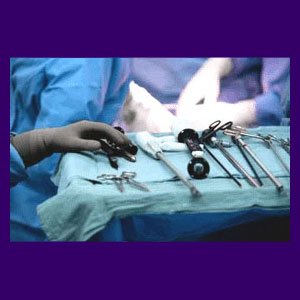
Back pain surgery is often a last ditch effort for patients to relieve their debilitating spinal symptoms. Back pain is an epidemic condition across the globe and the back pain industry has become a multi-billion dollar business model for aspiring pain specialists in many healing arts.
Surgery is the most drastic and risky of all methods used to treat back pain. Although it is still a popular treatment modality, postoperative results are often disappointing for the hopeful patient. While many surgical interventions are successful in correcting a structural abnormality, most do not provide marked pain relief over time. In fact, the vast majority of post-surgical patients will not enjoy good results lasting 7 years or more. Meanwhile some will see no improvement in their condition, while others will actually be worsened by their operation.
Spinal surgery is a very unsure proposition to undertake.
Reasons for Undergoing Back Surgery
Most actual anatomical causes of back pain can and will be successfully treated with appropriate medical or complementary treatment. Many painful conditions do not even require any treatment at all, since they will heal completely on their own. For patients who suffer from treatment-resistant back pain conditions, surgery is usually a proposed option once more conservative modalities fail.
Most back pain conditions are blamed on an injury or degeneration of a specific spinal structure. Intervertebral discs, vertebrae and spinal nerve roots are all commonly perceived to be troublesome and problematic structures in many patients. Although physical pain involving these structures is very possible, that pain should resolve eventually. The body is designed to heal and almost every anatomical structure can rehabilitate or regenerate itself with time and care.
Chronic back pain is the type of symptom most often treated with an operation. This type of pain is the agony which lasts and lasts, becoming a continuous life-altering problem. No wonder so many patients elect to undergo surgery. They feel how much worse could things get compared to suffering every day. Unfortunately, many of these patients live to terribly regret those very thoughts after their procedure.
Reasons Against Back Pain Surgery
Back surgery is a traditional medical approach used to treat virtually any dorsopathy condition. Pain syndromes which have been positively diagnosed, but have not responded well to conservative treatment are not likely to respond any better to surgery. This is the reason for the huge incidence of failed back surgery syndrome, either immediately after the procedural intervention or at some time in the patient’s future. The most logical reason why treatment has failed all along is a misdiagnosis of the actual cause of pain.
If confronted by an enlightened patient, a doctor will have to make the difficult choice whether to admit to an inaccurate diagnosis or a possibly negligent, improper and ineffective treatment protocol. You can see why many doctors are now realizing that their medical education has not adequately prepared them to deal with learned patients who demand answers about why their pain is not getting any better.
It is this same medical education which has failed both doctors and patients alike, by disregarding the interactions between the mind and the body when it comes to chronic pain. It is no surprise that litigation against doctors continues to rise and the cost of malpractice insurance is sky high. This is further compounded by the recent revisions in diagnostic protocols offered to members by major medical associations. These groups now warn doctors sternly not to diagnose pain based on structural abnormalities found during imaging studies unless a proven pathological process can be verified. These are the same abnormalities which justify about 99% of common back surgery procedures.
So, if these issues are not to blame, why is all this surgery still being performed? It seems like a lose / lose proposition for doctors and patients alike.
Back Pain Surgery Truths
A good surgeon will rarely, if ever, recommend surgery to a functional patient. If there is any way at all to cure pain through conservative means, those avenues should be exhausted prior to even considering an operation.
Spinal surgeries can be very invasive and may cause future health problems, limited mobility and loss of functionality for many post-operative patients. Surgery is never something to take casually.
If surgery is a good solution, or the only solution for your condition, try to find the least invasive way to achieve the surgical correction. Minimally invasive procedures are always easier to recover from and often leave fewer lingering effects.
Above all else, find a back doctor who truly understands your condition and actually cares about you. A human deserves to be treated as such, not just a 10:00 appointment on a surgical table.





